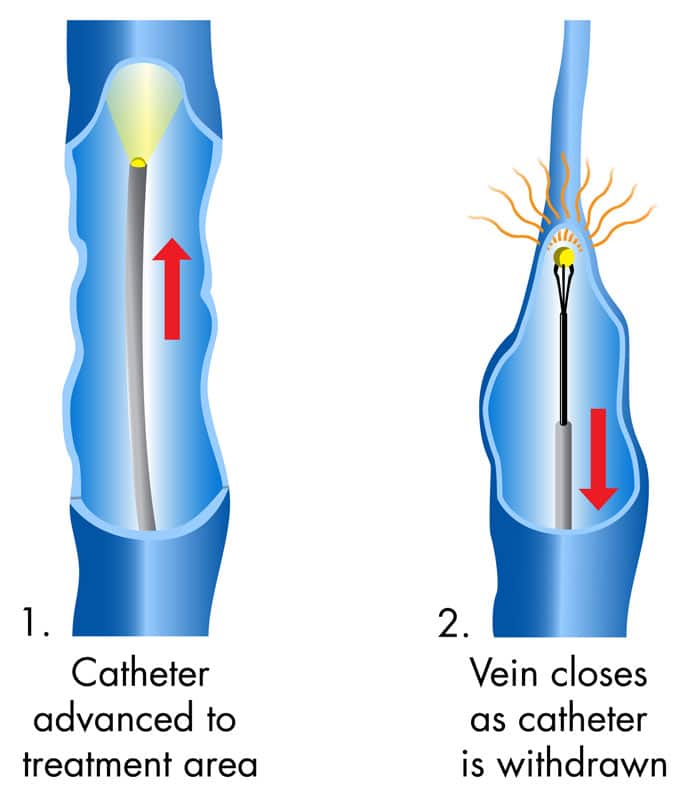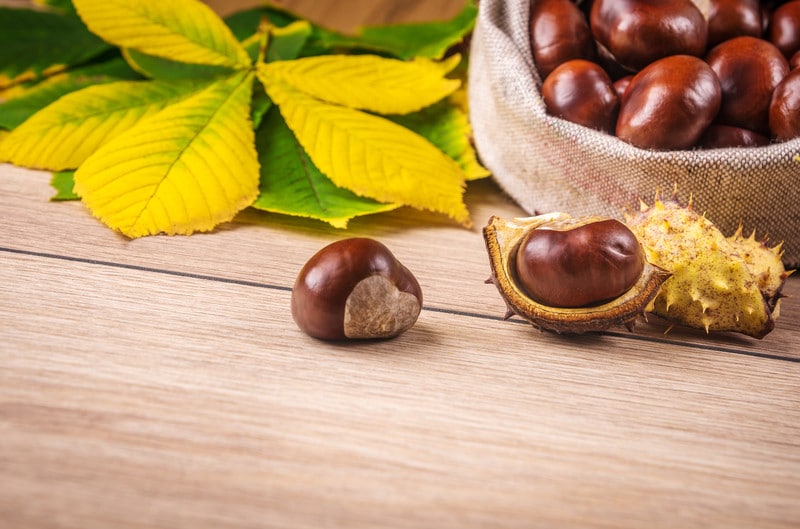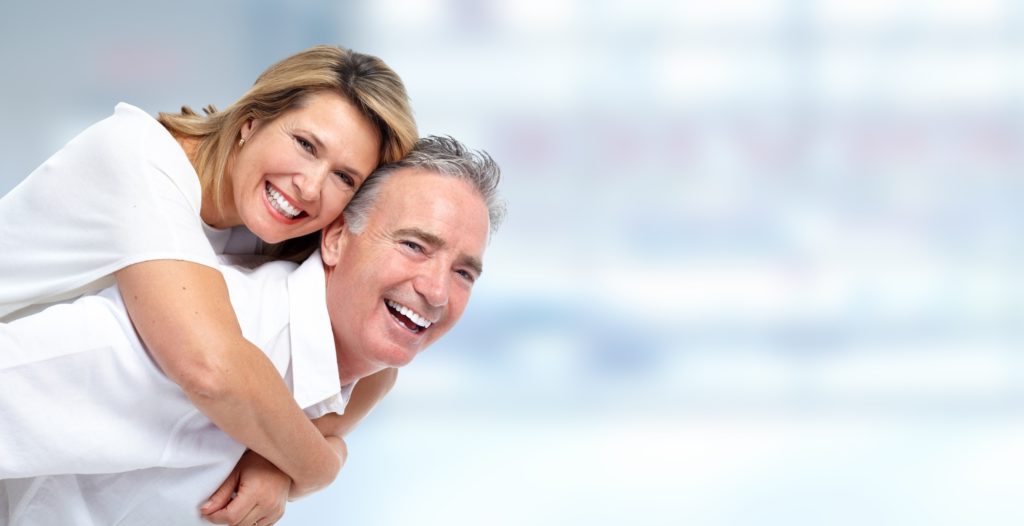What is endovenous ablation?

Endovenous Ablation Definition
Taken literally, endovenous ablation is the removal of a vein from within. ‘Endo’ means internal or inside, ‘venous’ refers to a vein, and ablation is to ‘remove’.
In the instance of veins, it is no longer necessary to physically remove a vein from the leg (vein stripping) to improve symptoms or the condition of chronic venous insufficiency. Technology exists in which the vein can be treated or ablated utilizing different forms of ablation.
Endovenous Vein Ablation Techniques
The three endovenous techniques which are currently used are; chemical closure (sclerotherapy), thermal closure (endovenous radiofrequency ablation or endovenous laser vein ablation), and the newest method is adhesive closure VenaSeal, a non tumescent non thermal vein closure. All three techniques close the veins off by accessing them with needle puncture and damaging the vein from the inside. By inflicting damage to the inside of the vein with either sclerosant, heat energy or adhesive, the veins are permanently closed and over time the body breaks this tissue down and carries it away.
The most common technique associated with the term endovenous ablation is the thermal technique. While inside the vein with either radiofrequency or laser energy, the vein is closed utilizing the thermal or heat energy delivered by the device. This technique requires an initial venous consultation and duplex ultrasound. It is also the technique recognized by most insurance companies and is indicated for treatment of symptomatic venous insufficiency in patients who have failed conservative therapy such as compression stocking use.
Next Steps?
If you are interested in obtaining more information about venous disease and symptoms which are causing you or a loved one concern, please consult a board certified Vein Specialist for a full exam and Duplex Ultrasound. Together with a medical professional you can discuss the most effective treatment for your specific situation.
Although there is no cure for varicose veins and venous insufficiency, there are certain varicose vein home treatments you can to help relieve some of the symptoms of aching legs, swelling of legs, itchy legs, leg cramps and restless and heavy legs. Varicose Veins Homeopathic Treatment For those who prefer a homeopathic approach for managing…
Read MoreAre you worried about your varicose veins? A lot of people who have venous insufficiency or vein disease do not realize they have it or how straightforward it is to treat. Symptoms of venous insufficiency or vein disease are progressive and can start as early as your teens and twenties, but will only get worse…
Read MoreCan You Cure Varicose Veins? There are several conservative therapy and management of vein insufficiency options to help with the symptoms associated with varicose veins. None of these methods will prevent or fix the underlying problem. There is no cure for varicose veins or venous insufficiency, once a vein is abnormal (fails to return blood…
Read MoreWhat jobs contribute to getting or worsening varicose veins? When you are in the business of taking care of other people, sometimes you get so busy taking care of them that you forget to take care of yourself. People with active lives and active legs, like fire fighters, paramedics, nurses, police officers, teachers, flight attendants,…
Read MoreCauses of Varicose Veins During Pregnancy There are a number of reasons why women get varicose veins during pregnancy. First, the volume of blood circulating in the body increases to help support your growing baby. However, veins don’t have a way to accommodate the extra volume so sometimes the veins bulge, itch, are painful to…
Read MoreWhat is a Vein Specialist? When the venous system becomes incapable of doing its job effectively, that is when a vein specialist is at their best. A vein specialist is a medical provider whose main focus is the treatment and management of venous disease. Vascular medicine is composed of two different systems, arterial and venous.…
Read MoreCan I Use Essential Oils For Varicose Veins? Essential oils can help to temporarily alleviate symptoms associated with the underlying problem of varicose veins, but they do not prevent, treat, or cure venous disease itself.
Read MoreThere are several treatments available for painful varicose veins According to recent studies, 50 to 55 percent of women and 40 to 45 percent of men in the United States suffer from some type of vein problem. Varicose veins affect half of people 50 years and older, typically found on the thighs, inside the leg,…
Read MoreHigh Temperatures Will Irritate Varicose Veins As hot as it gets in Arizona, we can’t blame the sun for our varicose veins or spider veins as it is not the cause. However, our hot Arizona summers do cause diseased leg veins to get worse, as do hot tubs, heating packs, and prolonged hot baths. Warmer…
Read MoreDoes smoking cause varicose veins or spider veins? The noxious chemicals in cigarettes can do serious damage to your veins and arteries, whether you use tobacco products on a day-to-day basis or on occasion. The signs of damage from smoking often shows up in our vein center patients through the development of spider veins…
Read More


